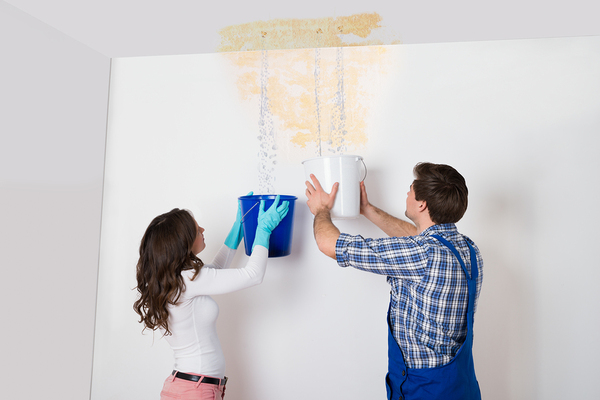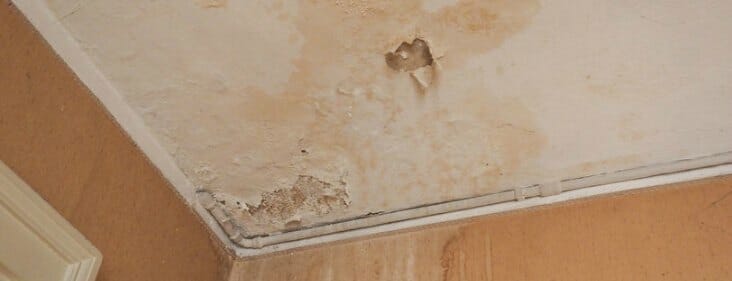Understanding What Leads To Water Seepage Happen Frequently at Home
Understanding What Leads To Water Seepage Happen Frequently at Home
Blog Article
Just how do you actually feel on the subject of How to detect water leaks in your home?

Leakages not only trigger waste of water however can likewise cause unnecessary damages to your residence as well as promote unwanted natural development. Water leaks might go unnoticed since many of the pipework in our house is concealed. By recognizing as well as looking for everyday scenarios that cause leakages, you can protect your residence from future leaks as well as unneeded damage. Today, we will certainly look at six leakage creates that may be creating your pipelines to drip.
Encroaching origins
Most water leakages begin outside the house instead than inside it. You could discover damp spots or sinkholes in your yard, and that may suggest that tree roots are invading water lines triggering water to permeate out.
Rusty water supply
This may be the reason of staining or warping on your water pipelines. If our plumbing system is old, consider changing the pipes given that they are at a higher threat of corrosion than the more recent models.
Faulty Pipeline Joints
The point at which your pipelines attach is frequently the weakest link in the waterline. Pipeline joints can deteriorate over time, resulting in water leakages. Unfortunately, most of pipeline joints are not quickly visible. If you have noisy pipes that make ticking or banging sounds, specifically when the warm water is switched on, your pipe joints are possibly under a lot of pressure. It is suggested to have your plumber check your system once a year.
Instant temperature level changes.
Extreme temperature level modifications in our pipes can create them to broaden and get suddenly. This expansion and also contraction might trigger splits in the pipes, specifically if the temperature are below freezing. If you kept an eye on exactly how your plumbing functions, it would certainly be best. The existence of the formerly mentioned conditions frequently indicates a high danger.
Poor Water Connectors
At times, a leak can be caused by loosened pipes and pipes that supply your appliances. More often than not, shifting is what causes the loosened water Links. You may discover when it comes to a cleaning maker, a pipe may spring a leak as a result of trembling during the spin cycle. In case of a water links leak, you might notice water running directly from the supply line or pools around your appliances.
Blocked Drains
Obstructed drains pipes could be bothersome and inconveniencing, however they can often wind up triggering an overflow causing rupture pipes. Keep removing any materials that may drop your drains pipes that might block them to avoid such inconveniences.
All the above are causes of leaks however not all water leaks arise from plumbing leaks; some leaks may come from roof leaks. All leakages should be fixed quickly to prevent water damages.
Leaks not just create waste of water but can additionally create unneeded damages to your house as well as promote undesirable organic development. By recognizing and looking for everyday scenarios that trigger leaks, you can secure your home from future leaks and unneeded damages. Today, we will look at six leak creates that may be triggering your pipelines to trickle.
At times, a leak can be caused by loose tubes and pipelines that provide your devices. In instance of a water links leakage, you might see water running straight from the supply line or pools around your home appliances.
How To Check For Water Leak In Your Home
How To Check for Leaks
The average household's leaks can account for nearly 10,000 gallons of water wasted every year and ten percent of homes have leaks that waste 90 gallons or more per day. Common types of leaks found in the home are worn toilet flappers, dripping faucets, and other leaking valves. These types of leaks are often easy to fix, requiring only a few tools and hardware that can pay for themselves in water savings. Fixing easily corrected household water leaks can save homeowners about 10 percent on their water bills.
To check for leaks in your home, you first need to determine whether you're wasting water and then identify the source of the leak. Here are some tips for finding leaks:
Take a look at your water usage during a colder month, such as January or February. If a family of four exceeds 12,000 gallons per month, there are serious leaks.
Check your water meter before and after a two-hour period when no water is being used. If the meter changes at all, you probably have a leak.
Identify toilet leaks by placing a drop of food coloring in the toilet tank. If any color shows up in the bowl after 10 minutes, you have a leak. (Be sure to flush immediately after the experiment to avoid staining the tank.)
Examine faucet gaskets and pipe fittings for any water on the outside of the pipe to check for surface leaks.
Undetected water leaks can happen without the home or business owner even realizing. If you suspect a water leak, but not able to find the source. It is time to contact a professional water leak detection service, The Leak Doctor.
How To Find a Water Leak In Your Home
https://www.leakdoctor.com/blog/How-To-Check-For-Water-Leak-In-Your-Home_AE197.html

I ran across that piece on How to Find Water Leaks while doing a lookup on the web. Those who enjoyed reading our article kindly make sure you remember to pass it around. Thanks a lot for your time invested reading it.
Problem solved, just call. Report this page